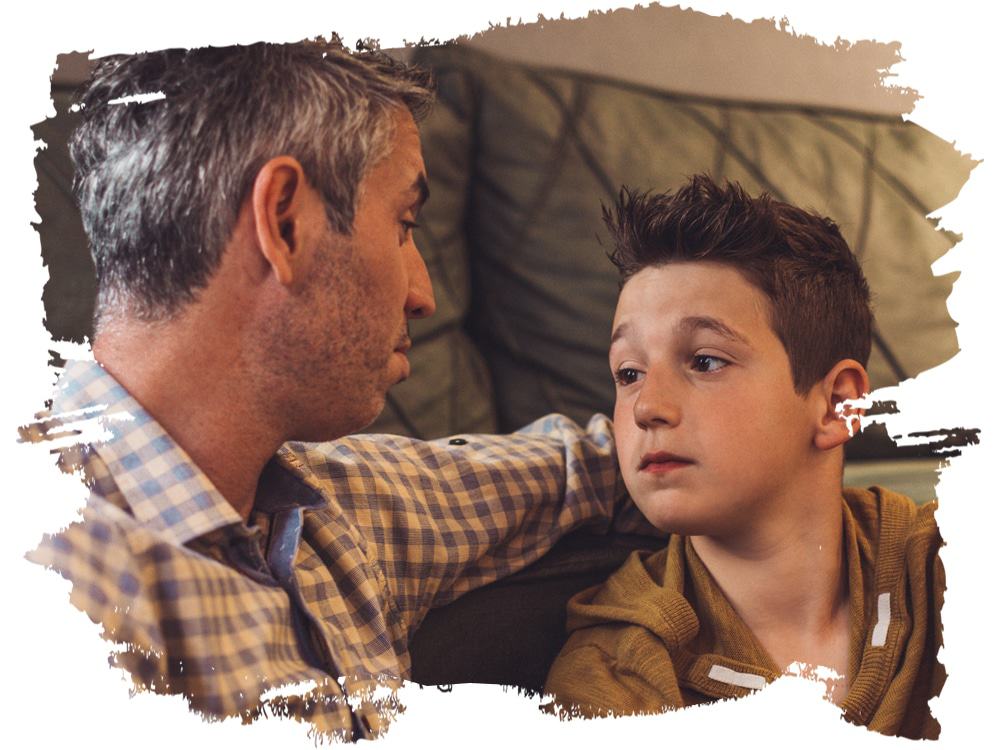
Sexuality
To better understand
Sexuality encompasses much more than just our genital organs and reproductive systems. Sexuality also relates to feelings and sensations, one’s relationship with one’s own body, identity, affection, intimate relations with a special person, social norms, culture, etc.
Young people spend their teen years exploring all of these aspects, each at their own pace and to varying degrees. For this reason, sexuality is often an issue that is top of mind for teenagers, not to mention for their parents as well.
As a parent, you want your teen to feel comfortable and take pleasure in exploring their sexuality, free from any health risks, negative influences (pressure, sense of obligation, threats), discrimination, or violence (physical, psychological, or sexual). Whether or not your teen is sexually active, it is important to guide them and give them the tools they need, based on their stage of development and experience.
• 3 % of students aged 14 and over question their sexual orientation.
• One-third of students aged 14 and over have had consensual sex(oral, vaginal, or anal) with a partner. By grade 11, half of all high school students have had consensual sex with a partner.
• Most teens have sex for the first time around age 16.
Want to learn more?
Check out our information sheets for more statistics, key facts, and solutions for families, schools, and communities.
To better support
Your teen may not tell you everything about their sexuality, and you may not feel comfortable talking about it. Just be aware that the more positive conversations about sexuality you have with your teen, the more likely they are to confide in you!
Communication
- Get the conversation started about the different sexuality-related topics:
- by giving your teen a book about sexuality;
- by talking more about what they learned at school;
- by using media events as a springboard for discussion;
- by asking questions about their experiences, while respecting your teen’s boundaries—and yours!
Supervision/Guidance
- Discuss rules about romantic relationships (permission to invite a romantic partner over or to go to their house, curfews, sleepovers);
- Make sure the rules apply fairly to all siblings.
Support
- Be open to listening to your teen;
- Refrain from judging them or overreacting when they confide in you;
- Respect your teen’s rate of development and experiences (do not rush them or make fun of them);
- Help them explore possible solutions to a problem but let them decide what to do and take care of it on their own.
At home
- Make sure your teen has a private space of their own and respect it.
- Make condoms available at home.

Some parents may feel uncomfortable talking about sexuality or answering some of their teen’s questions. In that case, admit this to your teen, then give them as much information as you can, and refer them to a trusted person or a reliable source (e.g., Tel-jeunes, book, website).
In brief
- Adolescence is a key time for exploring the different aspects of sexuality, which each person does at their own pace and to varying degrees;
- You can foster healthy sexuality in your teenager by supporting them and respecting their boundaries;
- The more positive conversations about sexuality you have with your teen, the more likely they are to confide in you!
Resources and practical tools
1. For support:
If you are concerned about a situation, do not hesitate to reach out to a support worker or a healthcare professional:
2. To learn more:
Transformations, Butterflies, Passions… and All Sorts of Questions (MSSS) – PDF document
Mosaik, capsule 4: Getting involved in your child’s sex education: you can do it! – PDF document
Tel-Jeune Ligne Parents issue on sexuality
Sex & U, a web sexual health resource by The Society of Obstetricians and Gynaecologists of Canada
Latest updates : February 2020
If you fear for your teen’s or your own safety, call 911 or your local police department.
Post a Comment
You must be logged in to post a comment.








